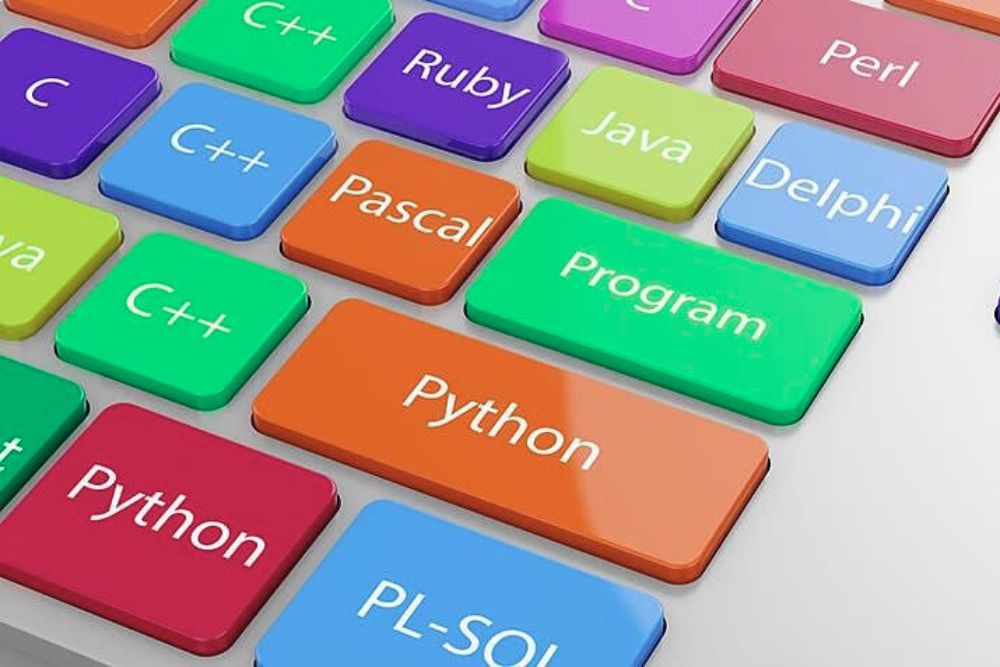Dreaming of building the next big app or designing software that changes the world? Becoming a software engineer is your ticket into a fast-growing, exciting career with endless possibilities. But how do you get there? What does it take to become a software engineer in today’s competitive tech landscape?
Let’s break down everything you need to know, from the essential skills and education to insider tips on breaking into the industry. Whether you’re starting fresh or looking to level up, here’s your roadmap to turning that dream into reality.
What Is a Software Engineer?
A software engineer designs, develops, and maintains software applications and systems. Their work ranges from creating simple apps to building complex systems that run businesses. Different roles exist within software engineering, such as front-end developers who focus on user interfaces, back-end developers who manage servers and databases, and full-stack engineers who handle both.
Software engineers solve problems by writing code, testing programs, and improving software performance. Their role is essential across industries, from technology to healthcare, making it a versatile and in-demand career.
Software Engineer Requirements: What You Need to Know
To become a software engineer, a strong foundation in computer science or related fields is important. Many professionals hold a bachelor’s degree in computer science, software engineering, or information technology. However, education alone is not enough.
Technical skills such as programming, algorithms, and data structures are essential. Alongside these, soft skills like problem-solving, teamwork, and communication play a big role in success. Employers look for candidates who can write clean code, work well in teams, and adapt to changing technologies.
How to Become a Software Engineer: Step-by-Step Guide
Becoming a software engineer involves a mix of education, practice, and continuous learning. Many start with a formal degree in computer science or software engineering, which provides a solid theoretical foundation.
Alternatively, coding bootcamps and online courses offer intensive, practical training and can be a faster route into the field. Self-learning through tutorials, projects, and open-source contributions also plays a big role.
The key is to build strong coding skills, understand software development principles, and gain hands-on experience. Consistency and persistence in learning make all the difference.
Key Programming Languages and Tools to Learn

Choosing the right programming languages is vital when starting your software engineering journey. Popular languages include Python, known for its simplicity and versatility; Java, widely used in enterprise applications; and JavaScript, essential for web development.
Beyond languages, familiarizing yourself with development tools like Git for version control, integrated development environments (IDEs) such as Visual Studio Code, and debugging tools will help streamline your workflow.
Learning these languages and tools provides a solid foundation, making it easier to adapt as technology evolves.
Building Your First Projects and Portfolio
Hands-on experience is key to becoming a successful software engineer. Building your own projects helps you apply what you’ve learned and demonstrates your skills to potential employers.
Start with small projects that interest you, such as a personal website, a to-do app, or simple games. As your skills grow, tackle more complex challenges. Showcase these projects in an online portfolio or GitHub repository to highlight your abilities and dedication.
A strong portfolio can often speak louder than a resume and is essential when applying for jobs.
How to Get Into Software Engineering Without a Degree
A traditional degree is not the only path to becoming a software engineer. Many professionals have entered the field through self-study, coding bootcamps, and real-world experience.
Building a strong portfolio, contributing to open-source projects, and networking with other developers can open doors. Participating in coding challenges and hackathons also helps demonstrate your skills.
Employers increasingly value practical ability and problem-solving over formal education, making alternative routes more viable than ever.
How Long Does It Take to Become a Software Engineer?
The time it takes to become a software engineer varies depending on your chosen path and learning pace. A traditional bachelor’s degree typically takes about four years. Coding bootcamps offer intensive training programs that last anywhere from three to six months.
Self-learners may take longer, depending on the time and resources they dedicate. Practical experience through projects or internships can speed up the learning process. Ultimately, continuous learning is crucial as technology and tools evolve rapidly in this field.
Tips for Landing Your First Software Engineer Job
Getting your first job in software engineering can be challenging, but achievable with the right approach. Start by crafting a clear, concise resume that highlights your projects, skills, and any relevant experience.
Prepare thoroughly for technical interviews by practicing coding problems and understanding common algorithms. Networking through meetups, online communities, or internships can help you find opportunities.
Persistence is key. Keep applying, learning, and improving your skills to increase your chances of success.
Advancing Your Career: Skills and Certifications
After landing your first role, continuing to build your skills is essential for career growth. Learning new programming languages, frameworks, and tools keeps you competitive.
Certifications in areas like cloud computing, cybersecurity, or specific technologies can boost your credibility and open doors to specialized roles.
Additionally, soft skills such as leadership and communication become increasingly important as you take on more responsibility.
Common Challenges and How to Overcome Them
Software engineering is rewarding but comes with challenges. Keeping up with rapid technology changes requires continuous learning and adaptability.
Balancing theory with practical skills can be difficult, but working on real projects and collaborating with others helps bridge the gap.
Time management and avoiding burnout are also important. Setting realistic goals and maintaining a healthy work-life balance contribute to long-term success.
Your Journey Starts Now: Becoming a Software Engineer
Becoming a software engineer is a journey filled with learning, challenges, and growth. Whether you follow a traditional degree path or take alternative routes, the key is dedication and hands-on practice.
With the right skills, mindset, and persistence, you can build a rewarding career in software engineering that adapts with the ever-changing tech landscape. Start your roadmap today and shape the future of technology.
Frequently Asked Questions
Absolutely. The demand for software engineers is growing worldwide, with high salaries, remote work options, and opportunities across nearly every industry.
Common tools include GitHub for version control, Visual Studio Code or IntelliJ for coding, Jira for task management, and Stack Overflow for community support.
Build a strong portfolio, contribute to open-source projects, complete internships, and apply for entry-level roles. Networking and LinkedIn optimization also help a lot.
Yes, many people start from scratch. You’ll need to build your skills through online tutorials, practice projects, and continuous learning.
Both roles overlap, but generally, software engineers focus more on system design and architecture, while developers focus more on coding and building applications.
Basic math skills help, especially logic and problem-solving. However, advanced math is usually only necessary in specialized fields like machine learning or game development.
Start with beginner-friendly languages like Python or JavaScript. As you grow, learning Java, C++, or SQL can also be beneficial based on your area of interest.
It depends on your learning path. A computer science degree typically takes 4 years, while bootcamps and self-paced study can take 6 months to 2 years, depending on your commitment.
No, a degree is helpful but not required. Many successful software engineers are self-taught or have completed coding bootcamps or certifications instead of a traditional computer science degree.
The first step is learning the basics of computer science. You can start with an online course, a degree program, or self-study in programming languages like Python or Java.








